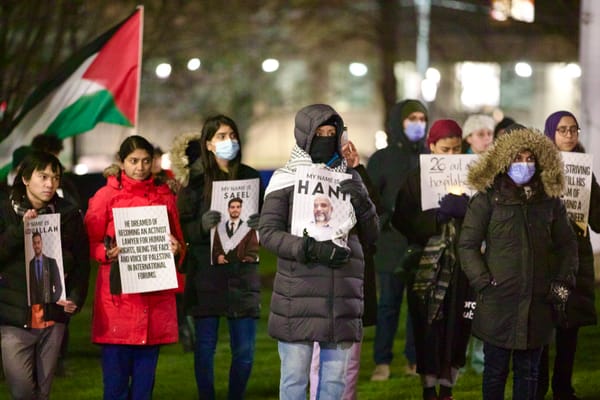In the midst of the chaos of the COVID-19 pandemic, hospitals in Canada have delayed non-essential surgeries to clear up necessary resources. On March 15, the Ontario Medical Association recommended all non-essential and elective surgeries be postponed. Alberta followed a few days later, deciding to cancel all non-emergency surgery, thereby pushing off more than 7,500 scheduled appointments. By March 20, all provinces and territories had made the same decision.
Doctors are now required to determine which services are non-essential by measuring the impact on the patient’s health if the procedure were to be delayed. Emergency services such as a burst appendix or C-section, for example, can’t be pushed off. Elective procedures, meanwhile, such as cataracts or knee surgeries, can be delayed without threatening a patient’s life.
Abortion Should Be An Essential Procedure
In the United States, at least 25 states have officially delayed non-essential surgeries and procedures. Of those three, Ohio, Texas and Mississippi have added abortions to their list of procedures not allowed during the crisis. Each of these states had also attempted to restrict abortions in the past year prior to the COVID-19 outbreak.
On Monday, the ACLU filed a lawsuit in Ohio insisting that abortion should be considered an essential medical procedure, which led to a federal judge temporarily blocking the ban. On the same day, a federal judge in Texas also temporarily blocked the state from banning abortions.
Meanwhile, Republican lawmakers have mused with the idea of sneaking abortion restrictions into the federal COVID-19 relief package.
There’s no question medical systems must change health delivery to manage the influx of patients infected by COVID-19 — shortages in ICU beds, medical equipment, masks and gloves have already proven to be deadly in New York. But adding abortion to the list of non-essential surgeries in these three states is a purely ideological move.
The idea that abortions aren’t critical care is absurd. Every week that passes can make an abortion more difficult, and the experience more traumatic. Telling someone that ending their unwanted pregnancy will have to wait until the pandemic is over is incredibly inhumane, but also illogical, as pregnant individuals must draw on even more services from a strained health system, due to routine check-ups, the parent’s health and possible crisis interventions.
Access To Abortions In Canada May Be Limited
Some Canadian clinics have modified their practices to try and reduce the virus’ spread, but no province or territory has deemed abortion non-essential. In the U.S., access to abortion is limited through ideological political means, yet access in Canada is threatened by chronic underfunding and service availability.
Having an abortion in Canada is already difficult, depending on where you live. COVID-19 will send more people into hospitals, and therefore may further limit abortion access.
There are seven provinces and territories with no rural abortion providers at all. In Prince Edward Island, Yukon and the Northwest Territories, there is only one single provider in the entire jurisdiction. If you need an abortion after 12 weeks in PEI or Yukon, you must go to another province or territory to have one. For Manitoba, New Brunswick, Newfoundland and Labrador, and Nova Scotia, the cutoff is 16 weeks.
When New Brunswick’s only abortion clinic announced last year that it would have to close due to lack of funding, Conservative Premier Blaine Higgs argued that their government shouldn’t have to pay for private medical services, claiming abortions are still possible in hospital. In February, federal Health Minister Patty Hajdu said Higgs’ position is a violation of the Canada Health Act, as clinic abortions must be covered by provincial health insurance.
Third trimester abortions, often accessed in the case of extreme medical situations for either the fetus or the parent, are hard to access in every province or territory. Only three locations offer the service in Canada, forcing many people to go to the U.S., which is currently in an even worse emergency state than Canada due to COVID-19.
During the crisis, some medical experts have argued that anyone seeking an abortion should try to avoid the surgical option by taking the abortion pill Mifegymiso. However, there’s been a shortage of the pill in Canada since early February, and the COVID-19 pandemic has slowed Mifegymiso shipments.
Frédérique Chabot from Action Canada for Sexual Health and Rights, a pro-choice organization, told CTV, “Plans must be put in place to make sure that we don’t suffer shortages in the next while, as Mifegymiso will play a big role in ensuring access to abortion in Canada.”
Closed clinics, lack of availability of necessary medicine and tightened public healthcare budgets threaten abortion access far more than explicitly anti-choice legislation does. The fight for abortion services in Canada is intimately tied to the fight for more funding for all public healthcare.
As the COVID-19 pandemic continues to intensify, there will be tremendous strain on all health services, and it’s likely that surgeries of all kinds will be more delayed. But abortion isn’t like any other health service.
Feminists must remain vigilant to protect abortion access for anyone who needs one in the upcoming weeks and months, especially those offered in hospitals, as the crisis intensifies and services are stretched to their breaking points.







